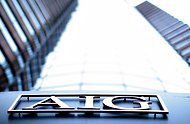JERUSALEM — The vision was ambitious. Better Place, an electric vehicle infrastructure company, unveiled plans more than five years ago to pioneer a system of quick-service battery swapping stations across Israel to enable unlimited travel. The company’s founder predicted that 100,000 electric cars would be on the roads here by 2010.
But on Sunday, Better Place announced that its venture, a flagship enterprise of Israel’s image as a start-up hub, was coming to an end.
Dan Cohen, the company’s third chief executive, said in a statement that financial difficulties had left the company no option but to file for liquidation in a district court and to request the appointment of a provisional receiver “to find the best way to minimize the damage to its employees, customers and creditors.”
The announcement followed a string of setbacks in the emerging electric car market. Fisker, a carmaker, is in financial distress; A123 Systems, a battery supplier for Fisker, and, more recently, Coda Holdings, another carmaker, filed for bankruptcy. Tesla, the prominent car manufacturer, has had success, though, repaying its government loan last week after a successful initial public offering.
Israel had been considered a perfect testing ground for Better Place’s green project, given the country’s small size and high gasoline prices. The electric car fit into Israeli dreams of reducing oil dependency; the initiative gained the support of the government and was embraced by Shimon Peres, the president of Israel. President Obama, during his March visit here, praised the Israelis’ innovative spirit, mentioning electric cars as one of several examples.
Yet the project was hobbled by problems and delays, and the company’s idea failed to gain traction, with fewer than 1,000 cars on the road in Israel today and another few hundred in Denmark. Mr. Cohen said on Sunday that the vision and the model had been right, but that the pace of market penetration had not lived up to expectations. Without a large injection of cash, he said, Better Place was unable to continue its operations.
“This is a very sad day for all of us,” Mr. Cohen added. “The company brought with it a vision that swept along many people here and around the world.”
About $850 million in private capital has been invested in the company, which has 350 employees in Israel. The largest shareholder, with about 30 percent of the stock, was the Israel Corporation, a large holding company that focuses on chemicals, energy, shipping and transportation. The corporation’s decision not to invest further in Better Place led to the motion for receivership.
The Better Place model for electric car use emerged from an effort among manufacturers and suppliers to establish a standard infrastructure in the nascent industry. Under terms that resembled a cellphone plan, subscribers to Better Place bought their cars and paid about $350 a month to lease access to the batteries, swap stations and charge points. But only one car manufacturer, the French automaker Renault, signed on to adapt its Fluence Z.E. sedan to enable battery switching, limiting the customers’ choices and the company’s potential.
The battery has a range of about 100 miles. For those traveling longer distances, Better Place set up a network of switching stations where it promised that swapping a depleted battery for a fully charged one would take about the same time as filling a car with gas, so that range would no longer be an issue.
“It’s not the future of gas stations; it’s the end of them,” the company Web site boasted.
About three dozen switching stations now dot Israel, which is about 260 miles long from north to south, but they often look deserted.
The company was founded in Palo Alto, Calif., by Shai Agassi, an Israeli entrepreneur who had previously been a top executive at SAP, the German software company. It then moved from California to Tel Aviv.
In October, Better Place announced that Mr. Agassi had been replaced as chief executive by Evan Thornley, the company’s top executive in Australia. The company said Mr. Agassi would continue as a board member and shareholder. Mr. Thornley left after only three months, over differences regarding the direction of the company, according to Globes
, the Israeli business publication. He was replaced by Mr. Cohen.
In February, Better Place announced that it was winding down its operations in North America and Australia to concentrate on its core markets in Denmark and Israel.
Mr. Cohen said on Sunday that the company would do what it could to continue to serve its customers and operate the recharging network, until the liquidator decides on a course of action.
Article source: http://www.nytimes.com/2013/05/27/business/global/israeli-electric-car-company-files-for-liquidation.html?partner=rss&emc=rss




